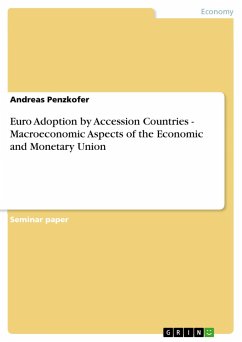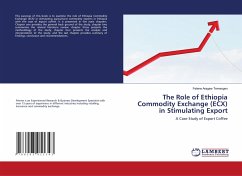
The Impact of Euro Adoption on Competitiveness
Comparison of the Czech Republic and Slovakia
Versandkostenfrei!
Versandfertig in 6-10 Tagen
32,99 €
inkl. MwSt.

PAYBACK Punkte
16 °P sammeln!
The presented publication focuses on the impact of introducing the common European currency on the competitiveness of a country. Much has been written on the possible effects of euro adoption on economies of the first eurozone participants. The contribution of this paper is its exploration of the impact of euro introduction on the competitiveness of Slovakia, in comparison to the Czech Republic which still uses its own national currency. Our findings suggest that most of the analyzed competitiveness indicators evolved largely in parallel in both countries. Positive trade effects brought about ...
The presented publication focuses on the impact of introducing the common European currency on the competitiveness of a country. Much has been written on the possible effects of euro adoption on economies of the first eurozone participants. The contribution of this paper is its exploration of the impact of euro introduction on the competitiveness of Slovakia, in comparison to the Czech Republic which still uses its own national currency. Our findings suggest that most of the analyzed competitiveness indicators evolved largely in parallel in both countries. Positive trade effects brought about by the introduction of the euro are rather moderate up to 5%. Slovak credit development was more favorable during the crisis, reflecting lower interest rates in the eurozone. On the other hand, high contributions to European stabilization funds may hamper Slovakia s economic growth and negatively influence the country s competitiveness in the future.












